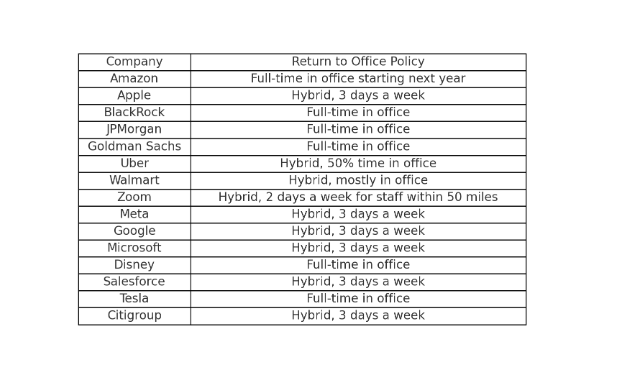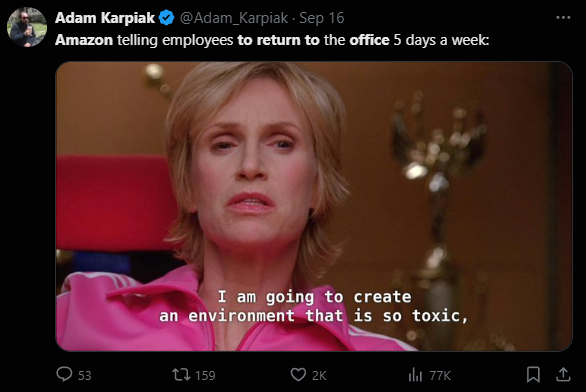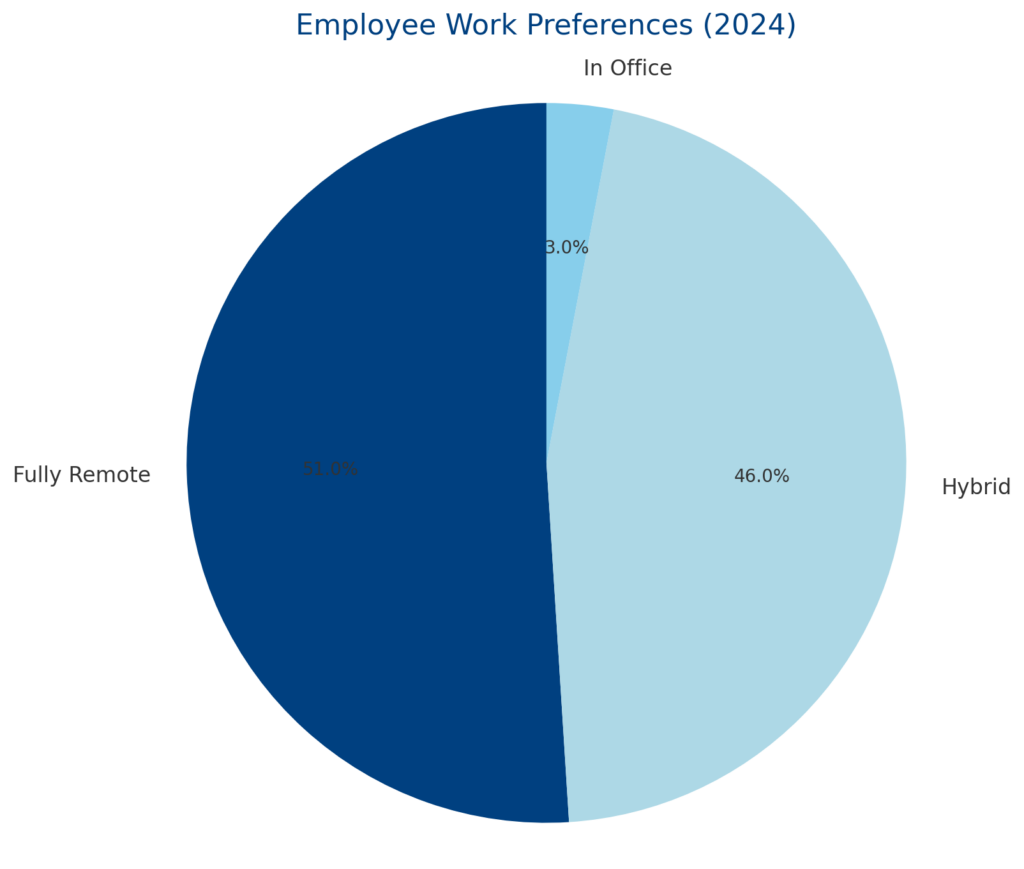Amazon’s Return-to-Office Mandate: A Seismic Shift in Corporate America

In a move that’s sending shockwaves through the corporate world, Amazon, the second-largest employer in the United States, has unveiled a plan that could reshape the landscape of modern work.
The tech giant is mandating a full five-day return to the office for its employees, effectively bringing an end to the remote work era that many have grown accustomed to over the past few years. With an Amazon return to office mandate, this can mean a lot for employees all over the country – not just for Amazon.
The New Policy: Mourning the Death of Hybrid Work
Amazon CEO Andy Jassy announced the dramatic shift in a company-wide memo, stating that Amazon employees will be required to work from the office five days a week starting January 2, 2025. This marks a significant departure from the current hybrid model, which allowed employees to work remotely for part of the week.
Jassy didn’t mince words about the company’s intentions:
“When we look back over the last five years, we continue to believe that the advantages of being together in the office are significant. We’ve observed that it’s easier for our teammates to learn, model, practice, and strengthen our culture; collaborating, brainstorming, and inventing are simpler and more effective; teaching and learning from one another are more seamless; and, teams tend to be better connected to one another.”
A Trend Gaining Momentum
Amazon’s return to work decision isn’t occurring in isolation. Walmart, the largest employer in the U.S., is reportedly following suit with similar back-to-office mandates. This shift is becoming increasingly prevalent across various industries, signaling a potential end to the remote work era that many employees have come to value.
As the owner of ARC Relocation, I’ve noticed a significant uptick in individuals and corporations seeking relocation services.
“We’ve seen an explosion in the number of people contacting us for help with relocating,”
I recently said this in a Linkedin post
“There’s also been a noticeable increase in corporations reaching out for employee relocation management services, specifically for employees being forced back to the office.”
With all these companies forcing employees back to the office in some capacity – it’s requiring people to uproot the lives they’ve gotten used to. As a result, they’re looking towards companies like ARC Relocation to help them.

The Ripple Effect
The implications of this shift extend far beyond the companies implementing these policies. It’s a change that will likely affect everyone, either directly or indirectly. Here are some potential consequences:
- Increased traffic and commute times
- Rising demand for commercial real estate
- Childcare challenges for working parents
- Potential for employee turnover and job market shifts
Amazon’s Rationale: Collaboration and Culture
Amazon’s leadership seems convinced that in-person work is crucial for maintaining the company’s innovative edge. Jassy emphasized the importance of face-to-face interaction:
“We want to operate like the world’s largest startup. That means having a passion for constantly inventing for customers, strong urgency (for most big opportunities, it’s a race!), high ownership, fast decision-making, scrappiness and frugality, deeply-connected collaboration (you need to be joined at the hip with your teammates when inventing and solving hard problems), and a shared commitment to each other.”
This is something that’s gotten pretty tiring over the years. No matter what, you can’t convince everyone that “culture” and “collaboration” provide for a better and more productive work environment. You just can’t. Not everyone is onboard and that’s why the hybrid model was so successful.

Employee Pushback and Potential Consequences
While Amazon’s leadership is bullish on the benefits of in-office work, the reaction from employees has been mixed at best. Many have grown accustomed to the flexibility of remote work and may resist this abrupt change.
There are concerns that this mandate could lead to:
- Decreased employee satisfaction and morale
- Potential loss of talent to companies with more flexible policies
- Challenges in recruiting new employees who value work-life balance

In reality, the vast majority of employees prefer fully remote or at least some form of hybrid model. It’s not to the benefit of the employees to force them into the office.
The Broader Impact on Corporate America
Amazon’s decision, given its size and influence, could set a precedent for other companies to follow. This could lead to a domino effect across industries, with more and more businesses abandoning remote and hybrid work models in favor of traditional in-office setups.
I also stated in my Linkedin post:
“I believe in the next year, virtually every company (and the U.S. Government) is going to force employees out of their houses and back to the office. This is a massive shift in corporate America that will somehow, some way, affect everyone.”
Preparing for the Shift
For those affected by these changes, preparation is key. Here are some steps individuals and businesses can take:
- Start planning for relocation if necessary
- Explore childcare options
- Prepare for changes in daily routines and commutes
- Consider the impact on work-life balance and make necessary adjustments
At ARC Relocation, we’ve created an entire program around this initiative. It includes way more than just shipping someone’s household goods. We’re here to help with all aspects of this transition.
The Future of Work: A Return to the Past?
As we witness this potential sea change in how and where work is conducted, it’s worth considering whether this represents a step forward or a regression to pre-pandemic norms. Will the benefits of in-person collaboration outweigh the flexibility and work-life balance that many have come to value?
Jassy seems convinced of the former:
“Before the pandemic, not everybody was in the office five days a week, every week. If you or your child were sick, if you had some sort of house emergency, if you were on the road seeing customers or partners, if you needed a day or two to finish coding in a more isolated environment, people worked remotely. This was understood, and will be moving forward as well.”
After Amazon’s Return To Office Mandate: Are You Ready?
As Amazon leads the charge back to the office, we’re witnessing a pivotal moment in the evolution of work culture. The coming months and years will reveal whether this move represents a lasting shift or a temporary swing of the pendulum.
One thing is certain: the landscape of work is changing once again, and both employees and employers will need to adapt. As we navigate this transition, services like those offered by ARC Relocation will be crucial in helping you, your employer, and your family manage the challenges and opportunities that lie ahead.
The remote work era may be coming to an end, but a new chapter in corporate culture is just beginning. How will you prepare for the changes to come?
